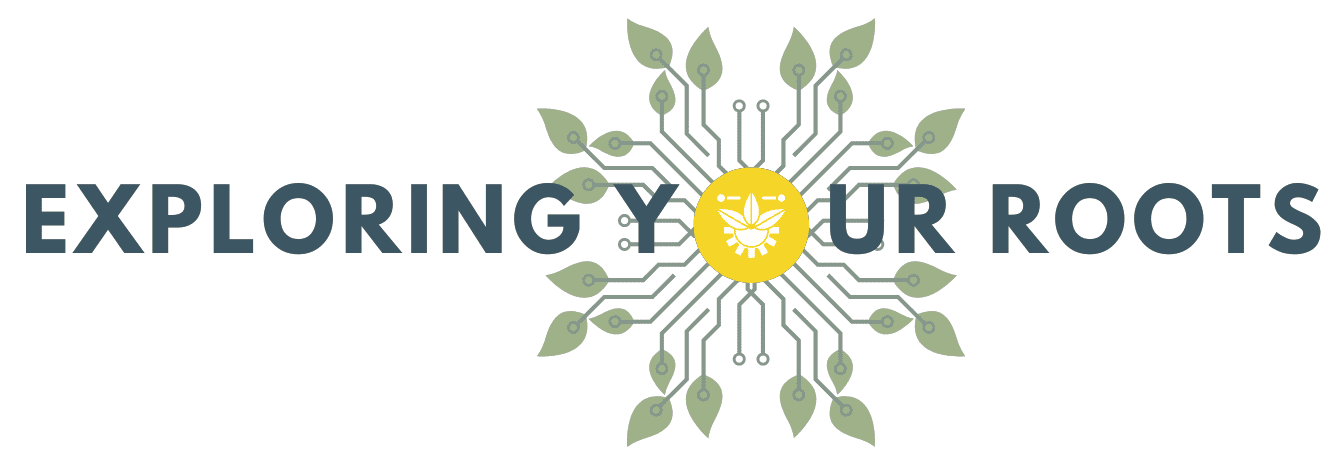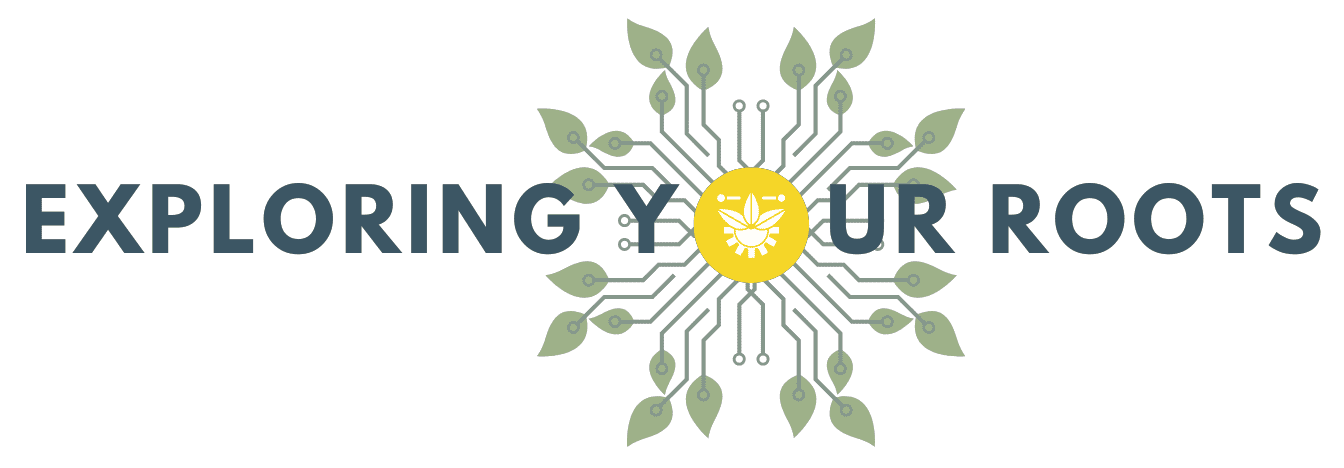Discovering your roots isn’t just about filling in a family tree. It’s a journey of self-discovery. Genealogy offers unique self-awareness activities that can transform your understanding of yourself. Let’s dive into 25 ways you can use family history to boost your self-awareness.
1. Start with Yourself
Begin your genealogical journey with introspection. Write down what you know about yourself and your immediate family. This simple self-awareness activity can reveal surprising insights. You might notice patterns or traits you’ve never considered before. It’s like looking in a mirror, but seeing your family reflected back.
RESOURCE: FamilySearch.org offers an inexpensive “My Family: Stories That Bring Us Together” booklet to help you record basic family information. MemoryGrabber is another tool for capturing personal milestones and passing them on to future generations.
2. Interview Your Elders
Talking to older relatives is like opening a time capsule. Their stories can shed light on your own behaviors and beliefs. They often have valuable stories and information that isn’t recorded elsewhere. Ask about their childhood, their struggles, their triumphs. You might find that your quirks have deeper roots than you thought. It’s like connecting dots across generations. Prepare questions in advance and consider recording the interviews.
RESOURCE: StoryCorps provides a list of great questions for family interviews.
3. Organize Your Findings
Creating a system to organize your genealogical discoveries is a self-awareness activity in itself. You’ll learn about your thinking patterns and organizational skills. Do you prefer digital tools or physical files? Are you detail-oriented or big-picture focused? Your approach reveals a lot about you. Use genealogy software or create a system to keep track of names, dates, places, and relationships. This will help you spot patterns and gaps in your research.
RESOURCE: Gramps is a free, open-source genealogy software that can help you organize your findings.
4. Verify Information
Cross-checking family stories with historical records teaches critical thinking. Confirm family history with official records like birth certificates, census data, and marriage licenses to ensure accuracy. You’ll learn to question assumptions and seek evidence. This self-awareness activity extends far beyond genealogy. It’s a powerful skill that can enhance all areas of life.
RESOURCE: You’ll find a great list of free resources for verifying data in this article on the National Genealogy Society website.
5. Explore Historical Context
Understanding the times your ancestors lived in can provide eye-opening perspective. Study local and world history relevant to your family’s timeline. You might gain new appreciation for your current circumstances. This self-awareness activity is a journey back in time that brings you back to yourself, more aware and grateful.
RESOURCE: The History Channel’s “This Day in History” feature can help you understand what was happening on specific dates in your family’s past.

6. Dive into Cultural Heritage
Your ancestors’ cultures have shaped you more than you might realize. Exploring these roots can unlock new dimensions of self-understanding. You might discover the origins of family traditions or personal preferences. This can help you find missing puzzle pieces of your identity.
RESOURCE: MyHeritage offers a “Ethnicity Estimate” feature with their DNA testing service, providing insights into your genetic heritage.
7. Identify Family Patterns
Look for recurring themes in your family history. Career choices, relationship patterns, or even hobbies might run in the family. Recognizing these can help you understand your own inclinations better. Engaging in this self-awareness activity is like reading a book where you’re part of the story.
RESOURCE: The Occupational Information Network (O*NET) can help you understand historical occupations and their modern equivalents.
8. Reflect on Migration Stories
If your ancestors moved, understanding why can be illuminating. Their reasons might echo in your own life choices. Do you have wanderlust? A desire for stability? These traits might have deep roots. Understanding why and how your ancestors moved can provide perspective on your own place in the world and adaptability.
RESOURCE: The Library of Congress offers a wealth of immigration and migration history resources.
9. Uncover Medical History
Learning about health patterns in your family tree isn’t just medically useful. It can reveal lifestyle choices and coping mechanisms passed down through generations. This knowledge empowers you to make informed decisions about your own health.
RESOURCE: The CDC’s Family Health History website offers tools for documenting and understanding your family’s health history. Resources include a handy online “My Family Health Portrait” that lets you keep track of history and risks that can be easily updated and printed to share with other family members or your health care provider.

10. Explore Family Traditions
Trace the origins of family customs or rituals. You might find that one of your quirky habits has centuries-old roots. This can deepen your appreciation for traditional practices and help you decide which to maintain. It’s like discovering the backstory to your life’s script.
RESOURCE: FamilySearch’s “Memories” feature allows you to record and preserve family traditions.
11. Analyze Naming Patterns
Names carry stories. Look for repeated names or naming conventions in your family. Understanding naming traditions in your family can reveal values and honored figures. You might see yourself as part of a larger narrative. This can reveal cultural practices or honored ancestors.
RESOURCE: BehindTheName.com provides the etymology and history of names from various cultures.
12. Identify Character Traits
Some personality traits seem to run in families. Recognizing these can help you understand your own behavior better. Are you carrying on a legacy of humor, resilience, or creativity? It’s like finding your role in an ongoing family saga.
RESOURCE: The Big Five personality test can help you identify and understand personality.
13. Study Ancestral Problem-Solving
How did your ancestors handle challenges? Their resilience and strategies might inspire your own problem-solving skills. You could discover strengths you didn’t know you had. It’s like uncovering a toolkit passed down through generations.
RESOURCE: Historical newspapers on Newspapers.com can provide context for challenges your ancestors faced.
14. Explore Past Decisions’ Impact
Your life has been shaped by choices made long ago. Understanding these decisions can be eye-opening. You might gain new perspective on your current circumstances. It’s like seeing the ripple effect of history in your own life.
RESOURCE: The book “The Genes of Inheritance” by Sharon Moalem offers insights into how past decisions affect future generations.

15. Identify Personal Strengths
Your family history is a treasure trove of potential strengths. You might find talents or skills that run in the family. Recognizing these can boost your confidence and self-understanding. It’s like discovering superpowers you didn’t know you had.
RESOURCE: The VIA Character Strengths Survey can help you identify your personal strengths.
16. Hone Research Skills
Genealogy research sharpens your analytical abilities. You’ll learn to dig deep, verify facts, and connect dots. These skills enhance self-awareness in all areas of life. It’s like training your mind to see patterns and connections everywhere.
RESOURCE: FamilySearch’s Learning Center offers free online courses on genealogical research techniques.
17. Develop Empathy
Understanding your ancestors’ challenges builds empathy. This extends to understanding yourself better too. You might become more compassionate towards your own struggles. It’s like gaining emotional intelligence through time travel.
RESOURCE: The book “Roots” by Alex Haley is a powerful example of using family history to develop empathy. Prefer movies? Check out our list of family history movies for more great stories!
18. Investigate Family Legends
Every family has its myths. Exploring these can reveal core values and aspirations. Even if not entirely factual, these legends often carry important family values or aspirations. You might find that a family legend has shaped your own goals. It’s like discovering the stories that have been silently guiding you.
RESOURCE: StoryWorth is a service that helps you collect and preserve family stories.
19. Find Role Models
Look for inspirational figures in your family history whose qualities or achievements you admire and can learn from. Discovering these can provide motivation and direction. You might find new sources of strength and inspiration.
RESOURCE: Newspapers.com’s obituary section can provide detailed information about your ancestors’ lives and achievements.

20. Connect with Living Relatives
Use your research to find and reach out to distant relatives, potentially expanding your support network and sense of belonging. These relationships can offer fresh perspectives on your shared history. You might see yourself through new eyes and your sense of self through connection.
RESOURCE: GEDmatch allows you to find genetic relatives who have tested with different DNA companies.
21. Explore Genetic Inheritance
DNA testing adds a scientific dimension to self-discovery. It can reveal information about your ethnic background and help you understand inherited traits. This knowledge can reshape
RESOURCE: 23andMe offers health and ancestry information through DNA testing.
22. Study Historical Impact
Study how major events (wars, economic changes, natural disasters) affected your family and shaped their lives. Understanding this impact can illuminate your own circumstances. You might gain new appreciation for your place in history. It’s like seeing yourself as part of a grand historical narrative.
RESOURCE: The National Archives offers a wealth of historical records and context for major events.
23. Trace Socioeconomic Changes
Trace your family’s economic status over generations to understand social mobility and the factors influencing it. You might understand your own attitudes towards money and success better. It’s like uncovering the roots of your financial mindset.
RESOURCE: The book “The Son Also Rises” by Gregory Clark explores intergenerational social mobility.
24. Set Inspired Goals
Use your ancestors’ achievements or unfulfilled dreams as inspiration for your own life goals. Their unfinished ambitions could provide motivation for you in continuing a family legacy. Picking up the torch passed down through generations could be a meaningful endeavor.
RESOURCE: The SMART goals framework can help you set effective personal goals inspired by your family history.
25. Practice Storytelling
Develop your narrative skills by sharing your family’s history with others, helping to preserve and celebrate your heritage. This practice enhances self-expression and self-understanding. You might discover new ways to tell your own story. You become the author of your family’s ongoing tale.
RESOURCE: The National Storytelling Network offers resources and workshops to improve your storytelling skills.
Your Journey to Self-Awareness
Genealogy offers a unique path to self-discovery. These activities connect you to your roots while illuminating your present. They provide context for your quirks, strengths, and challenges. Embrace this journey. You’re not just learning about your ancestors – you’re uncovering the many facets of yourself.
Remember, self-awareness is an ongoing process. Let your family history be a guide, not a limitation. Use these insights to grow, evolve, and write your own unique chapter in your family’s story.


